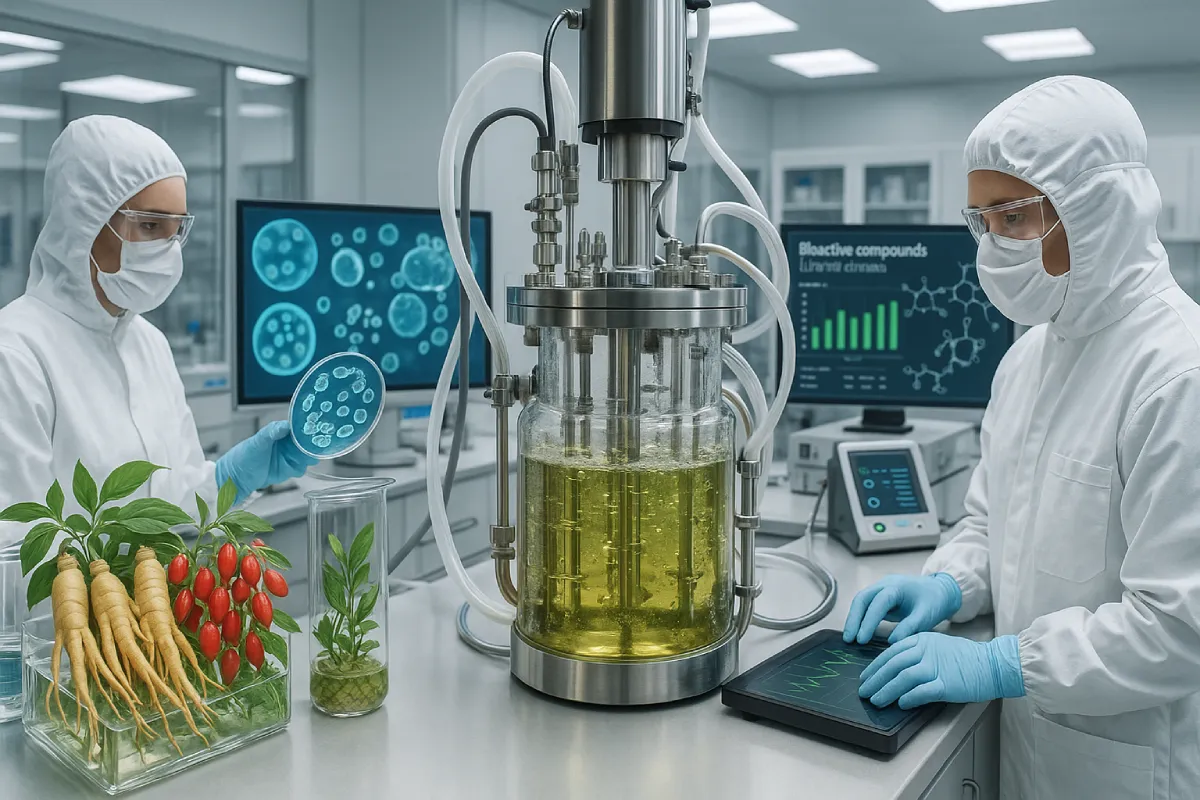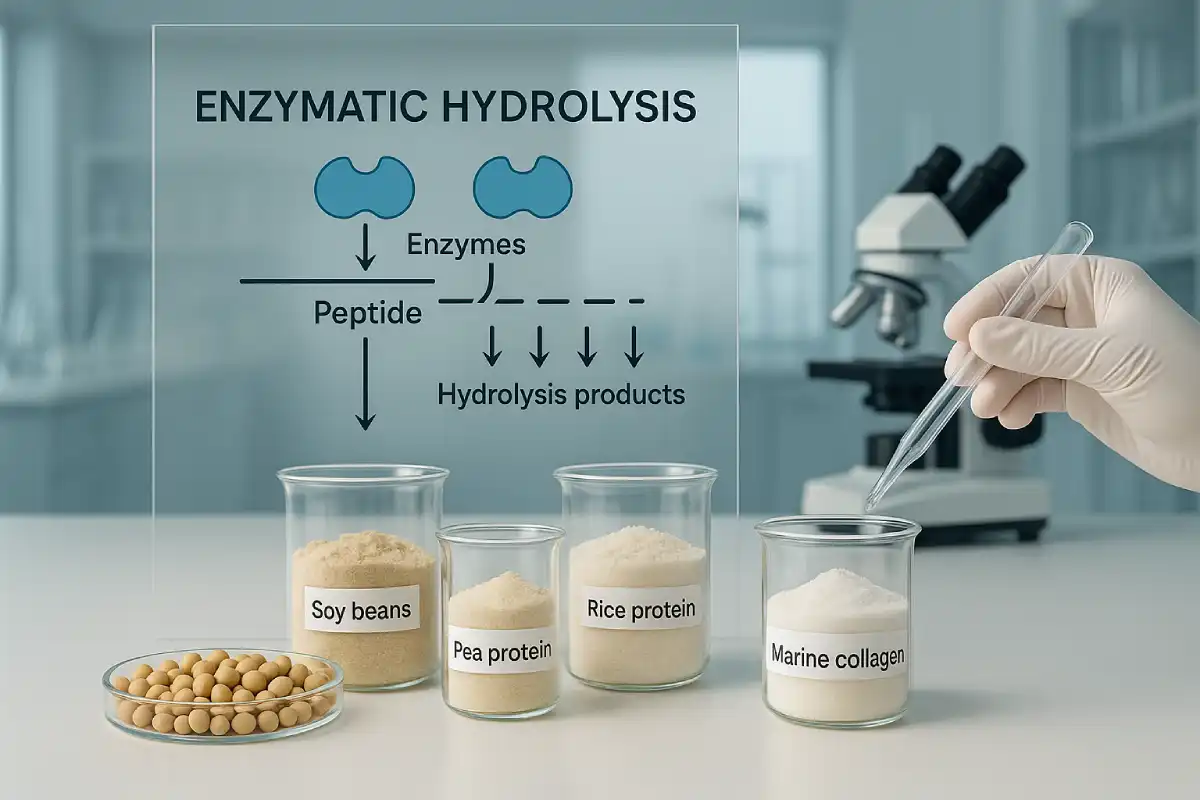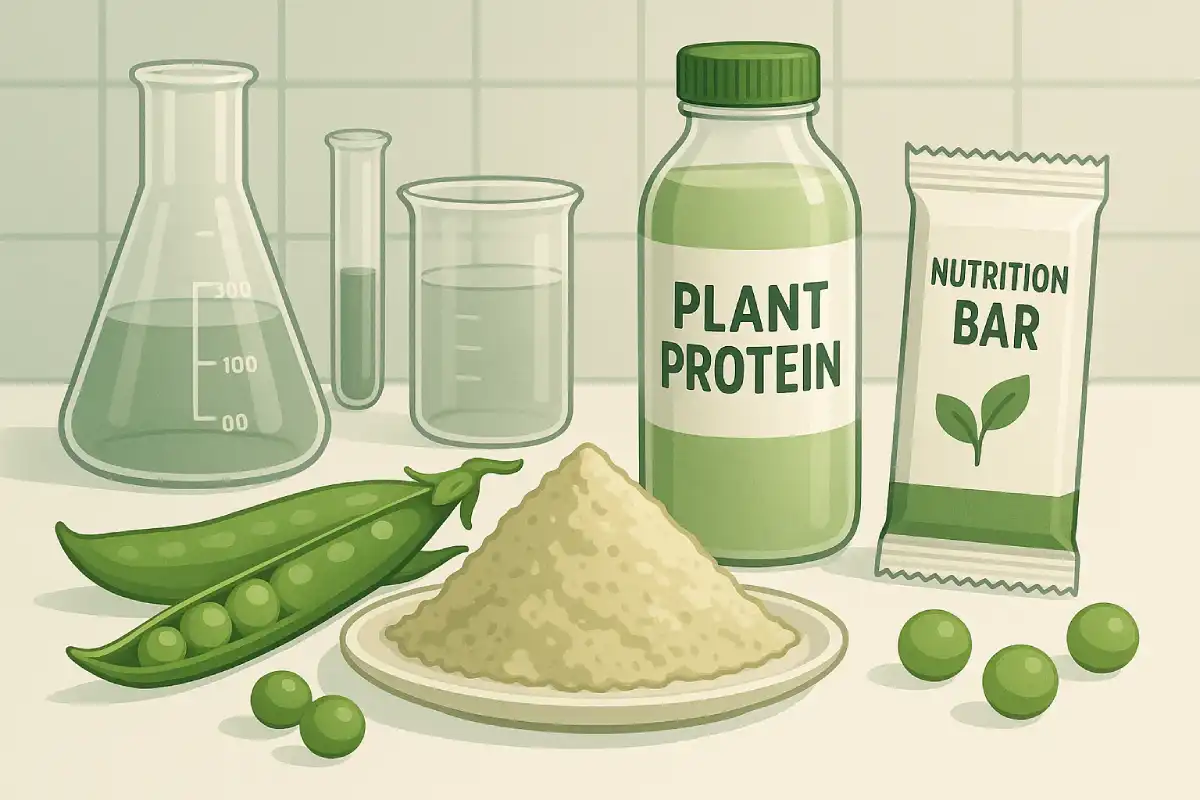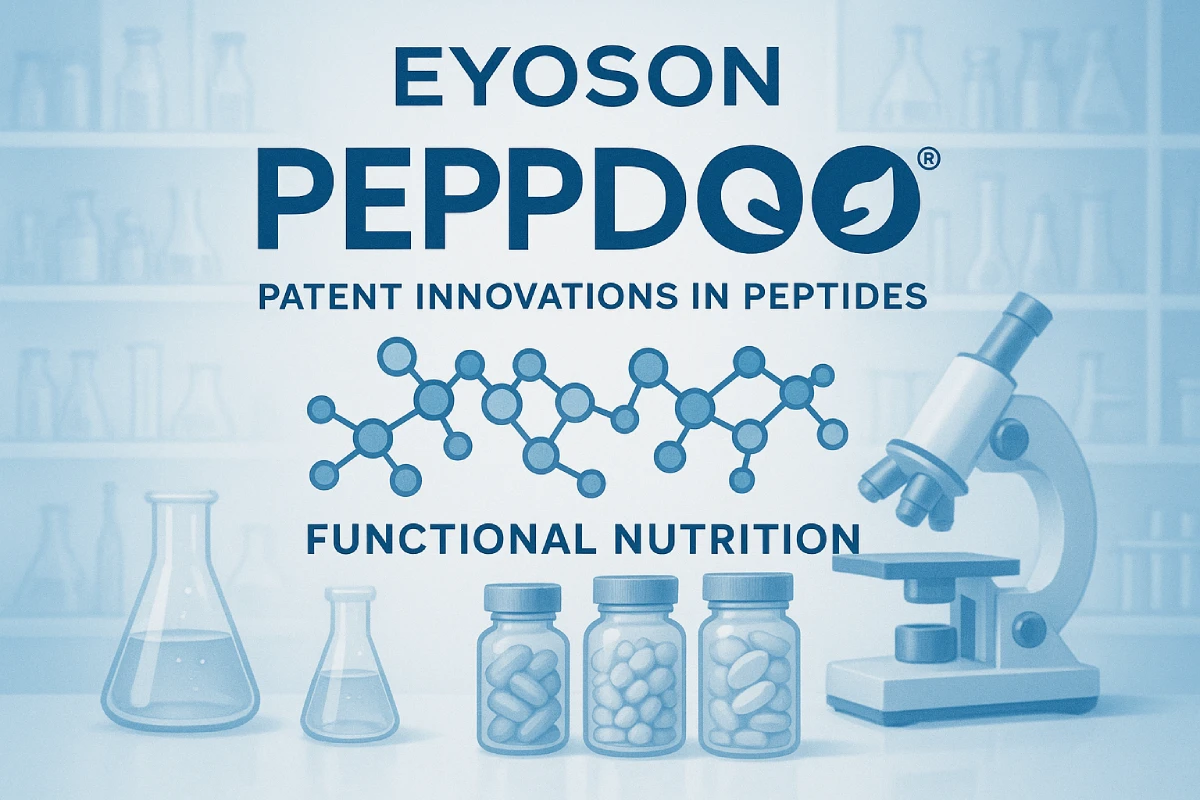The Importance of Standardization in Fermented Herbal Extracts for B2B Brands
In the rapidly evolving functional nutrition industry, ensuring the consistency of herbal extracts is critical for the success of B2B brands. The benefits of herbal extracts, particularly those derived from fermented plants, have become well-documented, from enhancing bioavailability to supporting various health benefits. However, without effective standardization, these extracts may vary significantly in terms of potency, efficacy, and safety. As a result, the need for standardization in the production of fermented herbal extracts has never been greater.
Standardization is a process that ensures a consistent level of active ingredients in each batch of herbal extracts, helping to meet regulatory requirements and customer expectations. In the context of B2B brands, standardization is crucial not only to maintain product quality but also to secure customer trust, increase production efficiency, and comply with international regulations. In this article, we will explore the significance of standardization in fermented herbal extracts and how B2B brands can benefit from implementing such processes.
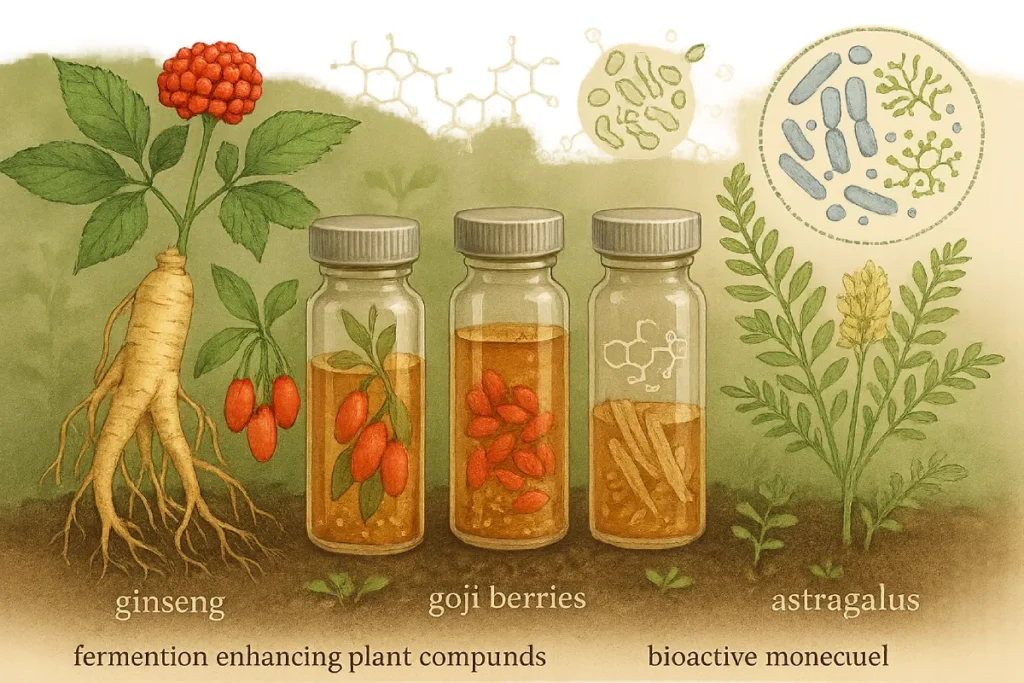
What is Standardization in Fermented Herbal Extracts? Why It Matters
Defining Standardization in Herbal Extracts
Standardization refers to the process of ensuring that a particular ingredient—such as a fermented herbal extract—contains a consistent amount of active compounds across different batches. These active compounds, often bioactive molecules such as polyphenols, flavonoids, and alkaloids, are responsible for the health benefits associated with the extract. Standardization ensures that each batch meets specific potency levels, offering consistent performance for consumers and meeting the required efficacy in finished products.
Why Standardization is Crucial for B2B Brands
For B2B brands in the functional nutrition sector, the importance of standardizing fermented herbal extracts cannot be overstated. Standardization:
- Ensures Consistent Product Quality: By guaranteeing that each batch of extract contains the same active ingredients, manufacturers can provide their clients with products that deliver reliable and predictable results.
- Meets Regulatory Compliance: Different regions have varying regulatory standards for herbal products. Standardization helps manufacturers comply with these standards by offering transparency and traceability.
- Enhances Brand Reputation: Quality consistency builds trust with customers, particularly for B2B buyers looking to source high-quality raw materials for their own products.
In the competitive world of functional foods, supplements, and medical foods, consistency in raw ingredients is critical to a brand’s success. B2B customers often look for reliable, compliant suppliers who can meet their needs for both quality and efficiency.
The Science Behind Fermented Herbal Extracts: Enhancing Bioactive Compounds
Fermentation is an ancient process that has been used for centuries to enhance the properties of food and medicinal plants. The fermentation process involves microorganisms such as bacteria, yeast, and molds breaking down complex compounds into simpler, bioavailable forms. This process not only preserves the plant’s nutrients but also amplifies its bioactive properties, making it a powerful tool in functional nutrition.
Fermentation and Bioactive Compounds
Fermentation enhances the bioavailability of many plant compounds, making them more effective in supporting health. For example, fermented herbal extracts can improve the absorption of certain antioxidants, enzymes, and probiotics, which can play significant roles in promoting digestive health, reducing inflammation, and combating oxidative stress.
Challenges in Standardizing Fermented Herbal Extracts
However, standardizing fermented herbal extracts is a complex process. Variability in the raw plant material, differences in fermentation conditions (e.g., temperature, humidity, and duration), and the use of different microbial strains can all lead to variations in the final product. This is where advanced technologies and scientific methods come into play to ensure consistency and quality.
How Standardization Supports B2B Brands in the Functional Nutrition Industry
Building Customer Trust and Brand Reputation
In the B2B space, maintaining a consistent level of product quality is crucial for establishing and retaining long-term relationships with clients. By offering standardized fermented herbal extracts, companies can build trust among their customers, ensuring that they receive consistent and effective ingredients that meet the required specifications. This level of reliability is essential in industries such as supplements and functional foods, where product efficacy and safety are non-negotiable.
Regulatory Compliance and Market Requirements
The global regulatory landscape for herbal products is evolving. Countries like the US, the EU, and China have different standards for herbal extracts, and compliance with these regulations is essential for brands to successfully enter and remain in these markets. Standardization is a key part of meeting these requirements, as it ensures the extracts meet potency, safety, and labeling standards, which are frequently scrutinized by health authorities.
Cost Efficiency and Scalability
Standardization also enables B2B brands to scale their production efficiently. By establishing a clear protocol for the fermentation process and using consistent raw materials, manufacturers can optimize their production lines, minimize waste, and ensure cost-effective operations. Standardization makes it easier to predict costs and timeframes for production, which is vital when working with large-scale clients.
Overcoming Challenges in Standardizing Fermented Herbal Extracts
Raw Material Variability
Herbal extracts are derived from plants, which are subject to natural variability. Factors such as soil quality, climate, and harvesting methods can all affect the chemical composition of the plant material. To overcome this challenge, it is essential to work with a reliable supply chain that ensures the use of high-quality raw materials consistently. This is where companies like EYOSON leverage their DaoDi (authentic medicinal material) sourcing, which focuses on selecting the best raw materials from trusted farms and suppliers.
Microbial Strain Differences
Fermentation relies on microbial activity, which can vary depending on the strain used. Different strains can produce varying levels of active compounds, which can impact the final extract’s potency. To mitigate this, EYOSON employs its own Fermentation Microbial Strain Library, ensuring consistent strain selection for each batch of herbal extract.
Fermentation Process Control
Fermentation conditions—such as temperature, pH, and fermentation time—can all impact the quality of the final product. Precision control is necessary to ensure that these variables do not cause fluctuations in the bioactive compounds of the extract. At EYOSON, we utilize state-of-the-art fermentation technology including precise temperature control, multi-stage fermentation, and high-efficiency vacuum concentration to maintain consistency across production cycles.

Technological Solutions to Ensure Consistency in Herbal Extracts
Advanced Analytical Technologies
High-performance liquid chromatography (HPLC) is one of the most widely used analytical techniques for ensuring the standardization of herbal extracts. HPLC enables the quantification of active compounds in herbal extracts, providing a reliable method for verifying batch consistency. At EYOSON, we incorporate HPLC testing into our quality control processes to ensure the potency of each batch.
Fermentation Monitoring Systems
To further enhance the standardization process, fermentation monitoring systems allow real-time tracking of fermentation conditions. By adjusting parameters such as temperature and pH based on real-time data, manufacturers can ensure that each batch of fermented herbal extract meets the required specifications.
Case Studies: Successful Standardization of Fermented Herbal Extracts
Case Study 1: EYOSON and the Implementation of DaoDi Sourcing
EYOSON has partnered with a leading B2B brand in the health supplement industry, offering standardized fermented herbal extracts sourced from DaoDi materials. Through our DaoDi Sourcing Network and Fermentation Microbial Strain Library, we helped the brand create consistent, high-potency herbal extracts that met international regulatory standards, leading to successful product launches across multiple regions.
Case Study 2: Scaling Production with Advanced Fermentation Technology
Another B2B partner, a functional food manufacturer, faced challenges with maintaining product consistency across large-scale production. By implementing our multi-stage fermentation technology and integrating it with precise fermentation control systems, the brand was able to scale its production while ensuring high-quality extracts, thus improving overall product efficacy and customer satisfaction.
EYOSON Advantage: Leading the Standardization of Fermented Herbal Extracts
EYOSON stands at the forefront of the herbal extract industry, with several unique advantages:
- Fermentation Microbial Strain Library: Our proprietary collection of over 10,000 strains ensures we can select the most effective strains for each herbal extract.
- DaoDi Sourcing and Quality Control: We source authentic medicinal materials from certified farms, ensuring consistency in raw materials.
- Advanced Fermentation Technology: Our cutting-edge fermentation techniques, such as precise temperature control and multi-stage fermentation, guarantee consistent product quality.
Partner with EYOSON for Consistent, High-Quality Standardized Herbal Extracts
The standardization of fermented herbal extracts is a critical step in ensuring consistent product quality and meeting the growing demands of the functional nutrition market. By partnering with EYOSON, B2B brands can leverage our advanced fermentation technologies, DaoDi sourcing, and microbial strain expertise to deliver high-quality, standardized herbal extracts that meet global market requirements.
For more information, contact EYOSON today to start your journey toward consistency and quality in fermented herbal extracts.
Unlock Consistency and Quality in Your Herbal Extracts with EYOSON
Partner with EYOSON to access high-quality, standardized fermented herbal extracts that meet global market requirements. Our advanced fermentation technologies and DaoDi sourcing ensure your products are consistently effective and compliant. Let’s take your business to the next level.
Contact Us to Start Your JourneyFAQ
The standardization of fermented herbal extracts is the process of ensuring consistent levels of active compounds in each batch. This ensures that the herbal extracts provide stable and predictable health benefits across multiple batches. For B2B brands, standardization is critical as it helps maintain product consistency, reduces variability, and builds trust with customers. It also aids in compliance with regulatory standards and optimizes manufacturing processes.
We ensure the consistency and quality of fermented herbal extracts through several key processes:
- Rigorous Raw Material Selection: Only authentic, high-quality herbs are chosen, sourced from certified suppliers with strict quality checks.
- Advanced Fermentation Technology: We use precise temperature control and multi-stage fermentation processes to ensure consistent potency across all batches.
- Scientific Quality Control: High-performance liquid chromatography (HPLC) and other advanced techniques are used to analyze and verify the active compound levels in each batch.
- Regular Product Verification: Every batch undergoes sensory evaluations and efficacy tests to ensure product effectiveness and safety.
Fermented herbal extracts offer several advantages:
- Enhanced Bioavailability: The fermentation process increases the absorption rate of active compounds, making them more bioavailable in the body.
- Increased Efficacy: Fermentation can transform complex molecules in herbs into more bioactive forms, enhancing their antioxidant, anti-inflammatory, and immune-boosting effects.
- Better Stability and Shelf-Life: Fermented extracts typically have longer shelf lives, maintaining their potency and effectiveness over time.
At PEPDOO®, we adhere to strict quality management systems and global compliance frameworks to ensure that our fermented herbal extracts meet international standards:
- GMP Certification: Our manufacturing facilities are GMP-certified, ensuring the highest product quality and safety.
- Multi-Country Certifications: We comply with various regulations, including the European EFSA standards, the US FDA guidelines, and other international certifications.
- Transparent Supply Chain Management: Our DaoDi Sourcing Center guarantees that all raw materials are traceable and meet regulatory requirements.
PEPDOO® offers tailored fermentation solutions by following these steps:
- Needs Analysis: We work closely with your R&D team to understand your specific requirements, such as functional goals, raw material preferences, and formulation needs.
- Process Optimization: Based on your needs, we optimize the fermentation process to ensure the final extract meets your specifications.
- Sample Testing and Validation: We provide samples and conduct small-scale production tests to validate the extract's quality, stability, and efficacy.
- Bulk Production and Supply: After confirming the sample meets your needs, we move to bulk production, ensuring timely delivery and consistent supply.
We use a comprehensive efficacy evaluation system to assess the effectiveness of our fermented herbal extracts:
- Sensory Evaluation: A professional lab assesses the color, aroma, and taste of the extract to ensure it meets quality standards.
- 5G Efficacy Evaluation System: Our proprietary 5G evaluation system tests the extract for its five core functions, including antioxidant, anti-inflammatory, and immune-boosting effects.
- Clinical and In Vitro Testing: We conduct small-scale clinical trials and laboratory experiments to validate the extract's effectiveness in promoting health.
The production cycle for fermented herbal extracts generally takes the following time:
- Sample Testing and Development Phase: Typically 2-4 weeks for fermentation optimization and sample verification.
- Bulk Production Phase: Depending on order size and customization requirements, the production cycle typically takes 4-6 weeks.
- Large Order Supply: For large-scale orders, the production cycle may be longer, but we ensure timely delivery according to the agreed-upon schedule.
EYOSON's fermented herbal extracts can help B2B brands lower production costs in several ways:
- Optimized Extraction Efficiency: Our advanced fermentation technology enhances the extraction yield, reducing raw material waste.
- Improved Product Stability: Fermented extracts have longer shelf lives, reducing returns and waste due to product degradation.
- Scalable Production: Our multi-stage fermentation process maintains batch consistency in large-scale production, allowing for more efficient use of resources and lowering unit production costs.
References
[1] Liu, H., & Wu, Z. (2021). Advances in the fermentation of bioactive herbal extracts for functional nutrition. Journal of Nutritional Biochemistry, 78, 108423.
